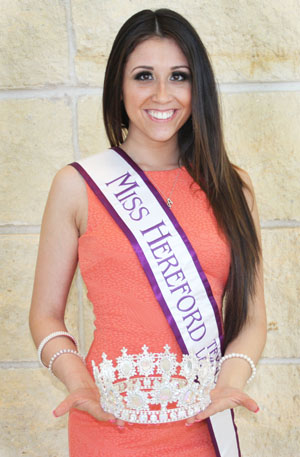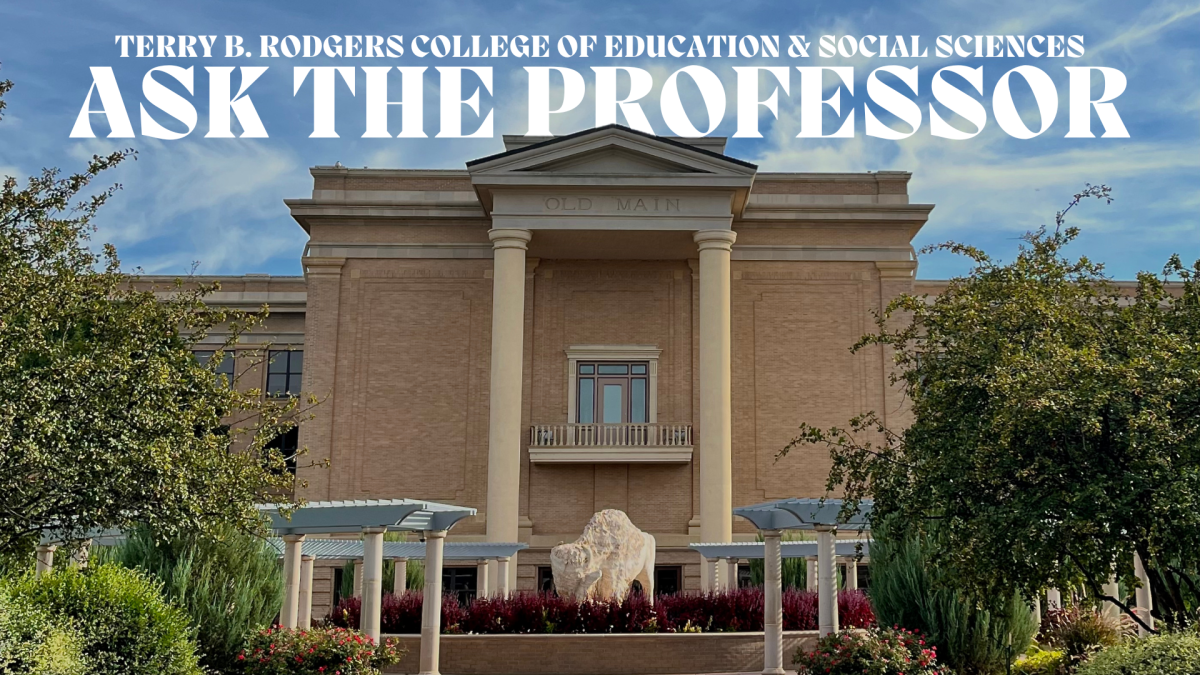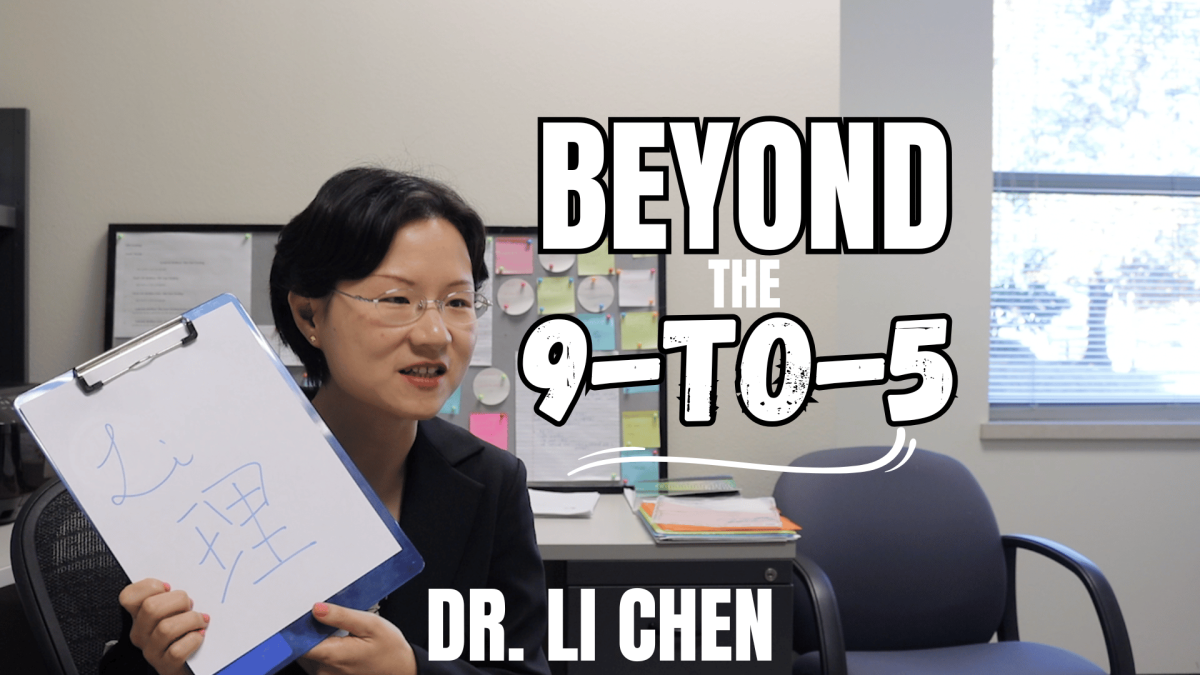
Wearing beautiful dresses, wearing a sparkling tiara and being one of “those girls” is something that many young girls dream about and wish for. For some, this is merely a dream, something she can only wish for. For others, this becomes a reality. Some girls grow up to be queens, but not of a country. Some girls are pageant queens.
Some girls enter the pageant world at a very young age, and some girls get immersed into the pageant world when they are a little bit older. Caitlin Robb, senior Agricultural Media and Communications major, entered her first pageant when she was six years old. Amy Romero, senior Mass Communication major, joined the pageant world in 2007 when she was a junior in high school.
When friends of pageant queens first learn of their participation in beauty pageants, the first reaction is usually negative.
“It’s usually a negative reaction when I say that I’m a pageant girl,” Robb said. “The word ‘pageant’ in itself often has a negative association.”
Even though the initial reaction from peers is usually negative, pageant girls don’t let that slow them down.
“It doesn’t affect me at all because being in a beauty pageant is not all about looks,” Romero said. “The slogan that the Miss America Latina of the World portrays is ‘More than a model, a role model.’”
Robb was one of the little girls who wanted to be “that girl.” She remembers, as a little girl, watching the big girls with the crowns.
“As little girls, we all have those role models that we look up to, and that was when I decided that I wanted to be one of those big girls,” Robb said. “So, I always remember that because whether you’re wearing a crown or not, you never know when you’re making an impression on someone, and you never know when you’re influencing a little girl.”
Scholarships are one of the benefits for pageant contestants. Robb and Romero are both receiving scholarships for their educations through their respective organizations, Miss America and Miss America Latina of the World.


“They portrayed it as a really good opportunity to receive a scholarship, and that was the main reason why I did it,” Romero said. “I know college is really expensive and it would help out with my studies.”
The Miss America organization is the biggest scholarship provider for women in the entire nation.
“I can’t even begin to describe the graciousness that I have for the scholarship money that I’ve received,” Robb said. “We all know how expensive college is. The money I’ve gotten from the Miss America organization really helps.”
Aside from the scholarships and the opportunity to influence the lives of young children, Robb and Romero have taken away many other benefits. To be a pageant girl, you have to be engaged in the world around you and involved in your community. Pageant contestants have to know what is going on in the news and be aware of that in order to answer any questions that the judge(s) may ask.
“I’m constantly aware of what’s going on in the world, and that’s something that most people don’t understand either,” Robb said. “In our pageants, we have a nine minute and 30 second interview, one-on-one with the judges, and in that interview they can ask us about anything from our favorite color to our opinion about gay marriage.”
Contestants have to know enough about things in the news and have a good enough understanding about it to have an intelligent answer and a personal opinion.
Pageant girls must be prepared for the pageants in more ways than just intelligence. Different pageants consist of different components, depending on the organization. Romero, as a contestant in the Miss America Latina of the World organization, must take etiquette classes to learn the proper way to walk, talk and eat in the pageant world.
“I went to etiquette classes where I learned how to sit properly, how to talk properly at a dinner table, how to eat properly, just little things,” Romero said.
Romero also went through a makeup class and a communication/speech class where she spoke in front of people and learned how to properly answer questions on stage. She was even taught how to hide her nerves.
One component of beauty pageants that is often looked down upon is the swimsuit competition. Some say that this portion of a pageant sexualizes women. Others say it gives young girls the “wrong” idea of beauty. For pageant contestants, it isn’t about being skinny and looking good in a bikini.
“There is a lot of negative connotation with the swimsuit competition,” Robb said. “My answer to that is that if you can stand on stage in a swimsuit in front of thousands of people you don’t know, there is not a thing in this world you can’t do. It is truly more about your confidence in yourself than it is what you look like.”
Living a healthy lifestyle is something that pageant contestants try to promote. Pageant girls do not tell young girls that you have to be skinny to be beautiful, but they encourage exercising and healthy eating habits.
“Everyone has their own beliefs on what’s appropriate to wear or not to wear, but I don’t see it as a negative. I see it as a positive opportunity,” Romero said. “Wearing a swimsuit, not a lot of people can do that. It takes a lot of courage and a lot of strength. I was nervous to be in a bikini, but it encouraged me to keep in shape. It’s about being in shape and being healthy, not about being sexual.”
The most important aspect of being a pageant girl is community service. The Miss America organization’s national platform is the Children’s Miracle Network. Contestants must raise money for the Children’s Miracle Network and be involved before they can ever compete in the organization. Alongside the national platform, pageant contestants also have local platforms.
Romero focuses on education and the young community. She believes they are the future of the world and that it starts with being a positive influence to them. Robb’s personal platform is “Diggin’ Deep! Educating Tomorrow’s Agricultural Generation.” She focuses on educating children on the importance of agriculture in our world.
“It’s not about the crown, it’s what you do with the opportunity that comes with the crown,” Robb said.
Robb and Romero have both learned professional skills through competing in beauty pageants. One of the biggest things they have both taken away from the pageant world is public speaking. They have gained the skills to speak one-on-one with an individual as well the skills to speak fluently and properly in front of a group of people.
While beauty pageants often have a negative association, the skills, community service and scholarships that Robb and Romero, both WT students, have gained make it very worthwhile to them. They both believe that it is not just about looks, fancy dresses and sparkling tiaras.
“You have to be so beautiful on the inside,” Romero said.








